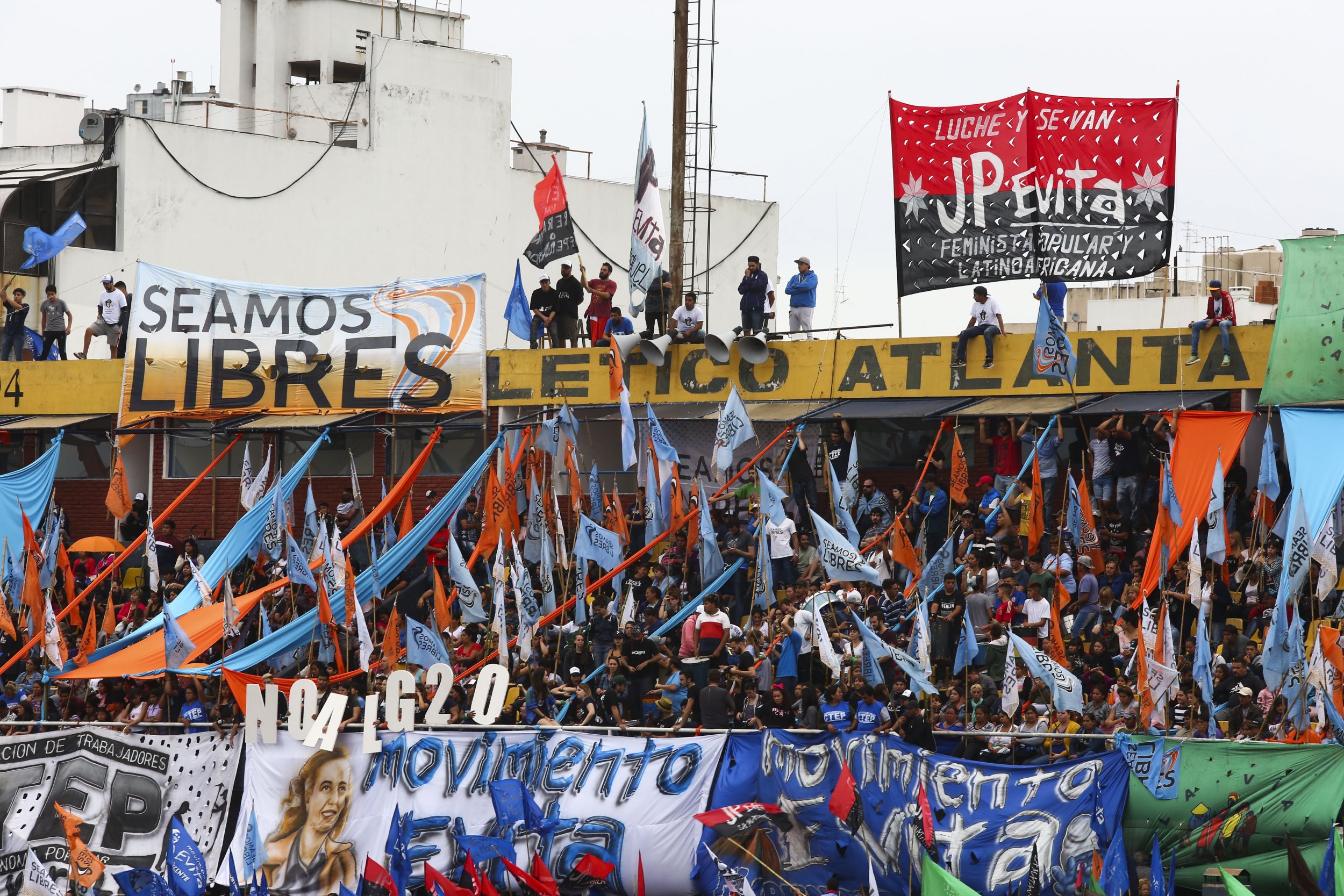
The Argentinian government is urging citizens to leave Buenos Aires as it prepares to send the capital into shutdown ahead of Friday's G-20 summit.
The heads of state of the world's 20 largest economies will begin arriving in Buenos Aires on Thursday to attend the two-day summit, with 33 protests against the G-20 and other events planned to greet them, The Guardian reported.
Flights over the city will be diverted, and all train lines, subways and other modes of public transport in the city of 12 million people will be closed. More than 22,000 police and security agents will be involved in the vast security operation, which will turn areas of the capital into "no-go" zones.
Friday has even been declared a public holiday in the hope that residents will take the hint and leave the city until the summit is over. President Mauricio Macri has suggested it would be best not to remain in the locked-down city.
Security Minister Patricia Bullrich said, "We recommend you use the long weekend to leave…. Leave on Thursday because the city's going to get very complicated."
She added, "There will be lots of no-go zones because the security measures will be very strong, and we're going to take immediate decisions if there's any violence because we're not going to allow it."
Large-scale—and sometimes violent—protests often accompany G-20 meetings. The summit's inherently capitalist nature attracts a wide range of demonstrators driven by different motives, whether it's income inequality, poverty, environmentalism or a wider anti-capitalist ideology.
Past summits in such cities as London, Toronto and Hamburg, Germany, have prompted a mix of peaceful protests, rioting, vandalism, arson, running battles with security services and police brutality.
"We know there are attempts to generate spaces of extreme violence and situations of chaos and disturbances during the G-20," Bullrich warned.
The planned events protesting the G-20 include a daylong "Summit of the People" on Thursday in the Plaza del Congreso in front of the Argentine parliament. Another large march demonstration will be held as the summit begins Friday. Its location has not yet been announced.
Amnesty International has called on the Argentine government to guarantee the right of public protest during the G-20, but it appears the appeal will be ignored.
Argentina has been wracked by financial crises in recent years, and International Monetary Fund–ordered austerity measures have left its population frustrated. The government regularly faces protests, sometimes violent, against the dire economic conditions, according to Reuters. As such, security officials are especially nervous.
Police in Buenos Aires will be keen to avoid any further embarrassment. This weekend, a major soccer game was called off when fans attacked a coach carrying players from a rival club, injuring several. The rivalry between the two teams is infamously intense, and the match was the final of the most prestigious soccer tournament in the Americas, but police failed to adequately protect the athletes.
Earlier this month, Bullrich said that anyone "already facing criminal charges, or who have called for violence or illegal behavior, will not be allowed to enter the country."
The usual complexities of securing 20 heads of state and their entourages have been exacerbated by controversy surrounding Saudi Crown Prince Mohammed bin Salman. The 33-year-old has prosecuted a bloody war in Yemen and is accused of ordering the murder of dissident journalist Jamal Khashoggi in October.
Argentine prosecutors are considering a Human Rights Watch writ, presented Monday, calling on the country's courts to invoke a universal jurisdiction statute to seek prosecution of Salman for war crimes and torture. The writ is unlikely to be accepted, The Guardian noted.
President Donald Trump will be traveling to the summit, accompanied by a small military force. Ten aircraft will carry the U.S. delegation, along with land vehicles and armed helicopters. American security teams have already been working in Buenos Aires for almost two weeks to secure the city.
The Guardian obtained a diplomatic note that said Washington will assist Argentina's security forces with "low-level radar coverage, extended air surveillance and detection coverage, persistent early-warning capability."
While the summit takes place, a U.S. navy ship, three E-3 AWACS spy planes and three KC-135 refueling aircraft will help monitor Buenos Aires, the note explained. The U.S. Homeland Security Department will also set up a mobile emergency response center and provide cyberintelligence support.
Uncommon Knowledge
Newsweek is committed to challenging conventional wisdom and finding connections in the search for common ground.
Newsweek is committed to challenging conventional wisdom and finding connections in the search for common ground.
About the writer
David Brennan is Newsweek's Diplomatic Correspondent covering world politics and conflicts from London with a focus on NATO, the European ... Read more





